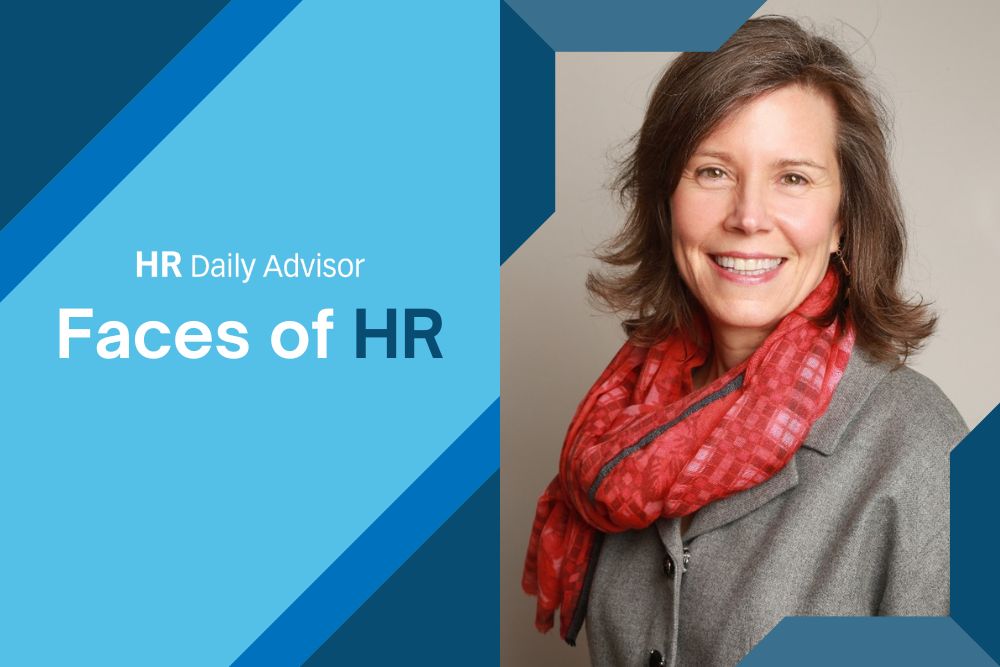Meet Brenda Leadley, North America Head of HR at Allianz Global Corporate & Specialty (AGCS) – a global, leading corporate insurance carrier and key business unit of financial services provider Allianz Group. AGCS is headquartered in Munich, has offices throughout North America – including New York, Chicago, and Toronto – and operates in more than 30 countries employing more than 4,000.
We recently connected with Brenda to discuss how she got her start in the industry, her best mistake, as well as her thoughts on how company leaders can make HR a value within their organization. According to Leadley, it’s all about changing your perspective.
“We need to get away from Michael Scott’s vison of HR – policy police who only want to enforce the rules and squash the fun,” she recently told HR Daily Advisor. “Leaders that rely on all the experience that HR brings to the table are those who will really succeed. We have thousands of hours of experience in recruiting, change management, development, org design, training, benefits. All these tools need to be aligned with the business. HR that is focused on the culture, supports the strategic vision of the business, and can provide pragmatic win-win solutions is ideal.”
In our latest Faces of HR, meet Brenda Leadley.
How did you get your start in the field?
Having led some large change management efforts for various organizations, I’ve had quite a bit of experience in training. That led me to apply for an opportunity to lead our Claims Academy and, from there, my IT and project management experience helped me advance into my next role in HR implementing large, global HR IT systems. From that point onward (2006) to now, I have stayed in HR.
Who is/was your biggest influence in the industry?
That was probably Bernd Lehmann, my CHRO in Paris, who gave me the opportunity to run global talent management. Florence Lecoutre, my CHRO, a few years later, was also a big inspiration and influence.
What’s your best mistake and what did you learn from it?
I declined a job offer to come back to the U.S. and return to Fireman’s Fund in 2009. At the time, I worried I had made a mistake, yet all my furniture and clothes (except one suitcase) had already been shipped back to the states. It was a stressful time. A few months later, however, I received an offer to move to Paris and take the best job I’ve had up to that point.
What’s your favorite part about working in the industry? What’s your least favorite part, and how would you change it?
My favorite part of my HR work is having an impact and helping colleagues do what they need to do efficiently and effectively; I also really enjoy helping my team develop and flourish in their careers. My least favorite part about working in the insurance industry is being behind the technology curve. Insurance, in general, doesn’t have cutting-edge systems. And, obviously most of the investment is going to be in underwriting and claims systems, not HR. Ideally, I would love to wave a magic wand and have all our various bits of HR data to come together in one simple system that would allow us to slice and dice data to better hire, develop and retain talent.
It sounds like through your experience you really care about people, and you want to help them feel safe and comfortable, which is important in the industry. Please elaborate here.
Yes, I care about all our employees, not just managers or senior executives. I want the work environment to be engaging, inviting and collaborative—a place where people can thrive and learn. I know not everyone wants to work in different functions and countries, but everyone should feel challenged and excited about their work. We spend too many hours in the week on our jobs. It would be a pity if those hours were miserable!
Where do you see the industry heading in five years? Or are you seeing any current trends?
I am starting to see more organizations do what we have already been doing – more strategic alignment and workforce planning, better systems with more data which ultimately requires better analysis and more complex legal environments. DE&I will also continue to be a key pillar in building a good corporate culture. Employees have gotten more vocal (transparency, flexibility, politics, DE&I) and I think this will continue as well.
What are you most proud of?
I hope I’ve made the lives of my various teams through the years better through trust, advice, mentoring, openness and offering many of them opportunities to continue to enrich their careers.
Do you have any advice for people entering the profession?
Say yes to various requests that come your way, take lateral moves, ask for advice and be curious.


